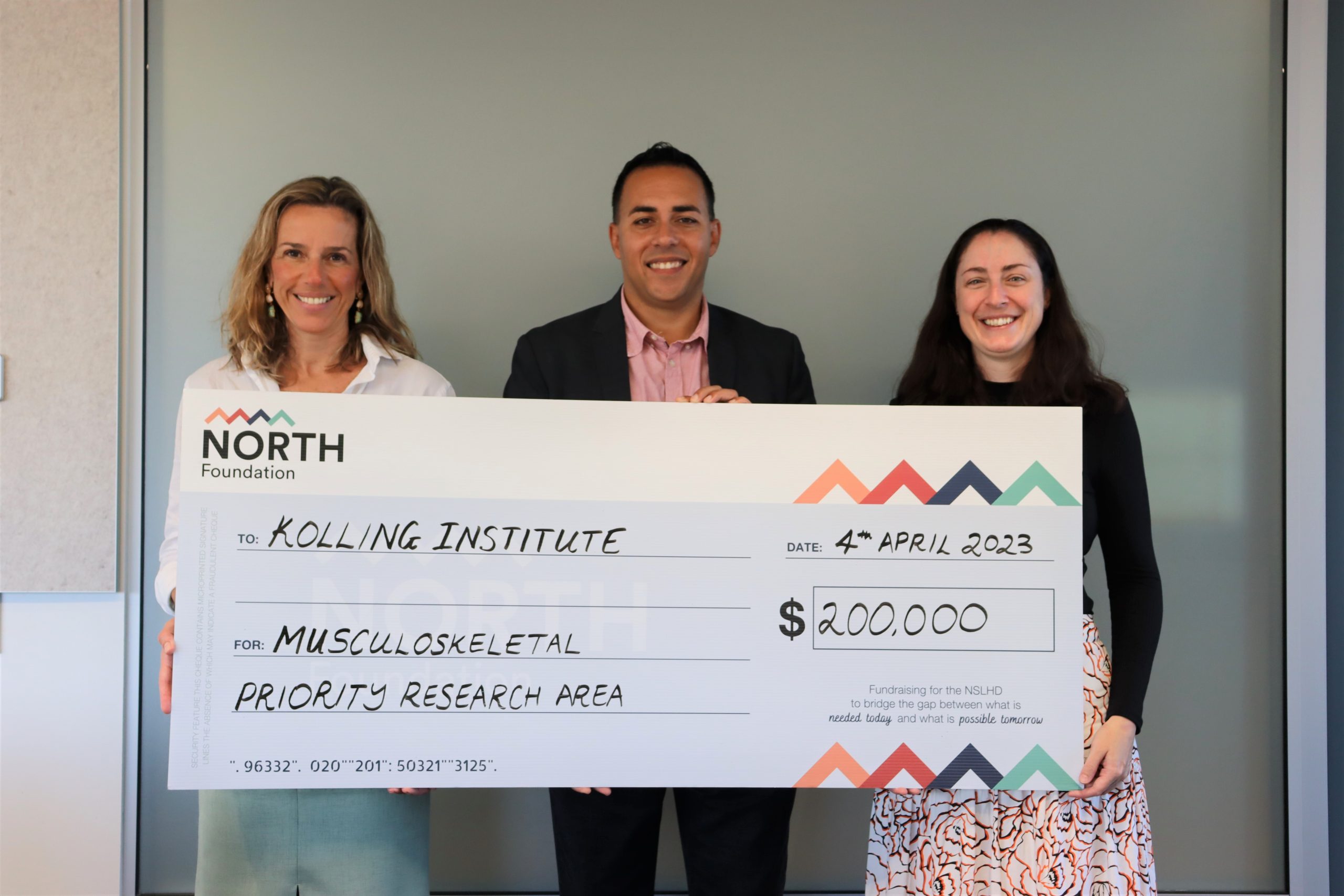
The NSLHD and NORTH Foundation Grants Program recently supported the Kolling Institute’s Musculoskeletal Priority Research Area (PRA) chaired by Professor Manuela Ferreira.
The grants program is a joint initiative designed to provide access to untied donations for philanthropic purposes to support innovative projects. With thanks to generous donors to the NORTH Foundation, a grant of $200,000 was awarded to musculoskeletal research. Bones, muscles and joints make up the musculoskeletal system, along with cartilage, tendons, and ligaments. This system gives your body its structure and support and lets you move around.
This grant will fund research on the burden, mechanisms and management of diseases that affect bones, muscles and joints, such as back pain, and osteoarthritis.
“This grant will enable us to advance musculoskeletal health and enable us to support rising stars and future leaders in musculoskeletal research, so we are very grateful to the NORTH Foundation and its donors for supporting our work,” said Professor Ferreira.
Ligament injury is common in younger athletes and up until now, patients’ own tendons have been used to replace damaged ligaments. The unit is trialing a new therapy to test whether it is safe and effective to use animal tendons in humans.
“We are using tissue engineering research to repurpose agricultural waste for human implants to repair musculoskeletal injuries,” said Professor Ferreira.
The Musculoskeletal PRA unit is made up of different groups researching musculoskeletal health. The Musculoskeletal PRA are also leading innovative and ground-breaking clinical studies, testing new and existing treatments for osteoarthritis, arthritis, low back and neck pain.
“Our team of researchers at the Musculoskeletal PRA unit are testing new and existing therapies with world leading placebo trials including spinal surgery and stem cell therapy for knee osteoarthritis.”
An example is the study led by Professor David Hunter assessing the role of stem cell therapy to reduce pain and increase functionality for patients with knee osteoarthritis.
Examples also include the research led by Professor Ferreira to better understand what makes people more likely to develop back pain, the impact of back pain, particularly among older people, and the role of existing and new therapies.
These new therapies for managing back pain include digital intervention such as Text for my Back which is a study that looks into sending people text messages on how to self-manage back pain to avoid unnecessary visits to health care professionals.
“This approach has been successful among people with cardiovascular disease and diabetes and has shown to reduce hospitalisations.”
Professor Ferreira’s team, in partnership with Norman Swan’s Tonic Health Media, is also looking at how a media intervention on the ‘Do’s and Don’ts’ of managing back pain, can be used to improve knowledge and health care delivery.
This video will be displayed in GP clinics and research will be developed to understand if this information changes the way people perceive and manage pain and if this can decrease the number of opioids and x-rays that are prescribed for back pain.
In a world-first, the Musculoskeletal PRA unit is conducting a placebo trial of surgery to establish for the first time, how and to what extent lumbar surgical decompression can release pressure from compressed nerves that result in back and leg pain.
You can further support Professor Ferreira and her unit’s research into musculoskeletal health at the Kolling Institute.
By choosing to make a monthly donation, you can help provide long-term strategic funding for projects like Professor Ferreira’s at the Kolling Institute.
You can donate to this research area directly online on our website. Our researchers are grateful for every donation they receive.

